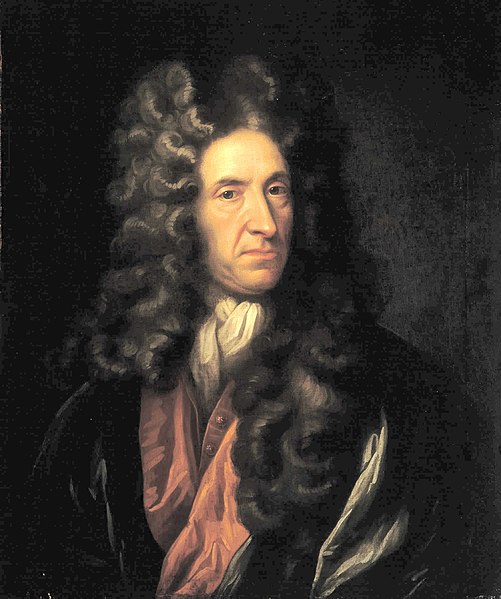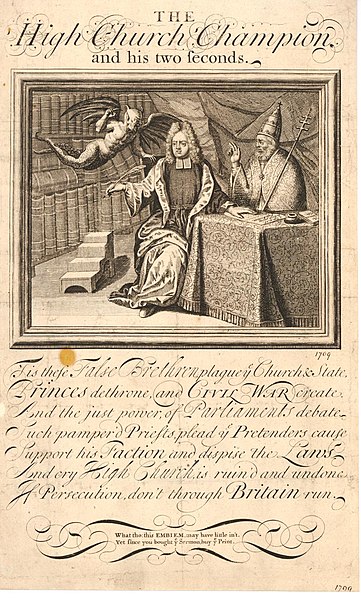Henry Sacheverell was an English high church Anglican clergyman who achieved nationwide fame in 1709 after preaching an incendiary 5 November sermon. He was subsequently impeached by the House of Commons and though he was found guilty, his light punishment was seen as a vindication and he became a popular figure in the country, contributing to the Tories' landslide victory at the general election of 1710.
Portrait by Thomas Gibson, 1710
Figure in Staffordshire pottery, c. 1745, a sign of his lasting popularity
John Hough, Bishop of Oxford, ordained Sacheverell deacon
Daniel Defoe dubbed Sacheverell "the bloody flag officer" and based the style of his The Shortest Way with the Dissenters on one of Sacheverell's sermons.
The term high church refers to beliefs and practices of Christian ecclesiology, liturgy, and theology that emphasize "ritual, priestly authority, [and] sacraments". Although used in connection with various Christian traditions, the term originated in and has been principally associated with the Anglican tradition, where it describes churches using a number of ritual practices associated in the popular mind with Roman Catholicism and Eastern Orthodoxy. The opposite tradition is low church. Contemporary media discussing Anglican churches often prefer the terms evangelical to low church and Anglo-Catholic to high church, even though their meanings do not exactly correspond. Other contemporary denominations that contain high church wings include some Lutheran, Presbyterian, and Methodist churches.
Satirical broadside of 1709/10 accusing Henry Sacheverell, "The High Church Champion," of "Popery."
Eucharistic procession by the Church of St. Mary Magdalene (Toronto)






